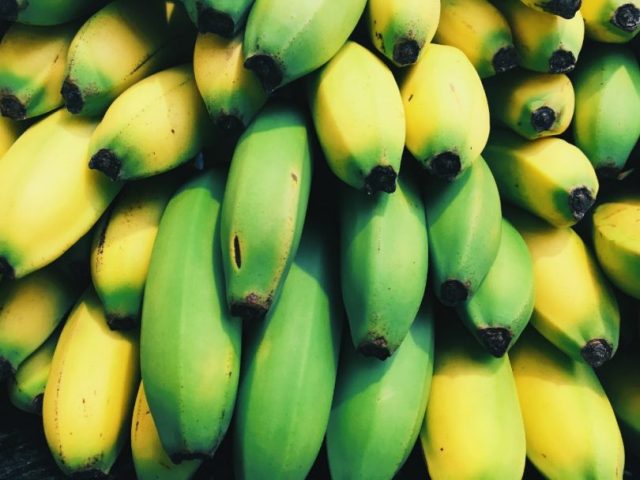
Banana imports from Jamaica first arrived in the United Kingdom in 1897, and although there were disruptions to supply, it was not until the Second World War that there was a complete break in the trade. In the early months of the war efforts were made by the UK government and the banana companies to maintain the trade, but by early November 1940 the shipping situation was “critical”, with a large number of refrigerated vessels being taken by the Admiralty for other purposes, particularly for the maintenance of forces stationed in the Near East. This action was taken unilaterally, without reference to the Minister of Food. As a consequence a general review was undertaken in early November of all import programmes to meet a reduced tanker tonnage. Under such circumstances it was felt that it was better to have a good supply of one fruit, oranges, rather than small quantities of several fruits. In terms of when the decision to end banana imports was actually made, there is evidence to suggest that as late as 18 November 1940, the Ministry of Food was still organising banana allocations with the importing companies, up to the period ending 30 June 1941. Notwithstanding, the official announcement came on 25 November. The decision to end banana imports was at first to apply for a preliminary period of two months, but was subsequently extended indefinitely. Licences were given for all banana supplies that were afloat or about to be loaded at the time of the announcement. In peacetime 28 ships were employed in bringing bananas to the UK. When the ban on banana imports was announced only 13 were still in use for this purpose, the others having been withdrawn for other duties or had been sunk. In preference to bananas, the Ministry believed those “high-energy” foods such as cereals, fats, meat and fish should be prioritised for importation.
When hostilities came to an end in Europe in May 1945, there was a hope, but not an expectation on the part of the countries that had supplied bananas to the UK that the UK government would permit the importation of bananas once more. As early as July 1945, banana shipments from Jamaica to the US were being undertaken, but the prospects of an early resumption of banana exports to the UK from Jamaica were not good. However, the UK authorities were aware of the symbolic importance of the banana for the British public, and felt that if imports could be resumed, it would be an indication of new hope for the country more generally. In early August 1945, there were discussions between the Colonial Office and the Ministry of Food regarding the resumption of banana imports from the Canary Islands, as the lack of refrigerated shipping meant that neither Jamaica nor the Cameroon were considered to be viable sources of supply at this time. There was, however, an acknowledgement that two refrigerated vessels, which were being used to carry bacon, might become available for the importation of bananas from Jamaica, but the Colonial Office felt “it was still premature to say anything to Jamaica on the subject”. By the end of August, however, with the cessation of hostilities in the Pacific Theatre, it seemed likely that three vessels would be available for the Jamaica run.
The UK government partially lifted the banana import ban in September 1945, and an agreement was then struck for the introduction of a system under which banana companies with an interest in Jamaica would act as ‘selling agents’ on behalf of the Ministry of Food. Half of the operation’s profits were taken by the Treasury to set against the subsidies given by the UK government to the industry during the war years, while the remaining half was retained by the Jamaican government and formed the nucleus of a fund to provide hurricane insurance and other services to the growers. The actual organisation of banana distribution in the UK was highly controlled, with only children and adolescents, and then expectant mothers and people over 70 receiving bananas. The first ship to carry bananas to the UK was the SS Tilapa, an Elders and Fyffes steamship, which arrived in Jamaica on 4 December 1945, heralding the return of a number of Jamaican servicemen who had fought in Europe during the war. After loading its cargo the Tilapa departed Jamaica, arriving at Avonmouth on 30 December 1945. The vessel carried 94,800 bunches of bananas, along with 14,126 cases of oranges. The return of Jamaican servicemen from the front, and the resumption of banana exports to the UK, had symbolic importance for both Jamaica and the UK, as there was now hope that a gradual normalisation of political and economic relations within the Empire would be possible.
Dr Peter Clegg is an Associate Professor in Politics and International Relations at the University of the West of England, UWE, Bristol and a member of the Round Table Editorial Board.



